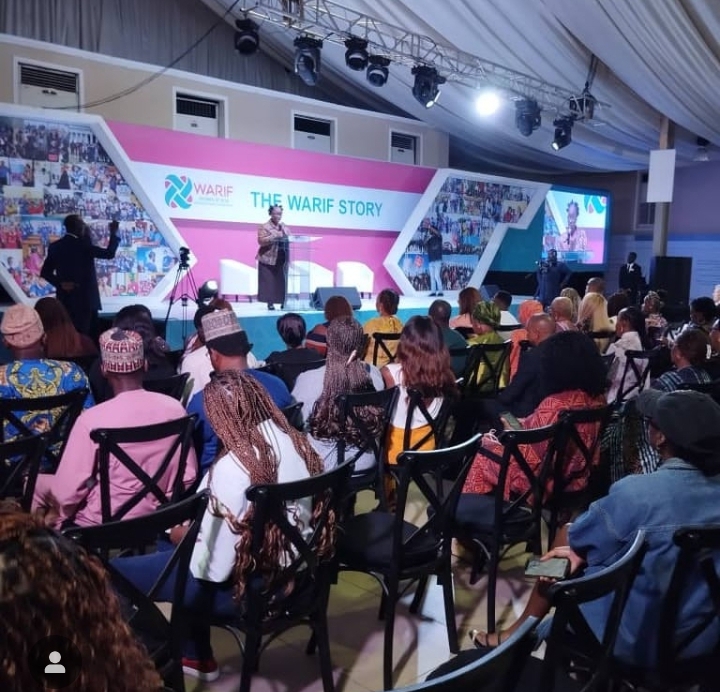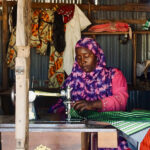For 52-year-old Aisha Adeyemi, menopause brought more than just hot flashes and night sweats. Once a resilient and independent teacher in Abuja, she now found herself grappling with insomnia, joint pain, and anxiety.
Social withdrawal became her refuge as her sharp memory dulled, and her mental health began to unravel. Like many women, Aisha didn’t fully understand what was happening to her body or mind, and even worse, she felt alone in her experience.
Menopause, the natural biological process that marks the end of a woman’s menstrual cycles, typically occurs between ages 45 and 55. Yet, in Nigeria and many parts of the world, the subject remains shrouded in silence. Women are often left to endure the physical and emotional toll without adequate support.
This cultural silence has deep historical roots, where menopausal women were marginalized and their health concerns dismissed. Today, this lack of awareness means many women continue to suffer silently, attributing symptoms like joint pain and memory loss to aging rather than the hormonal changes of menopause.
A Path to Support: WARIF’s Holistic Approach
In a moment of despair, Aisha heard about a workshop run by the Women at Risk International Foundation (WARIF), focusing on menopausal symptoms. Reluctant at first, Aisha eventually decided to attend, seeking answers for the changes that had taken over her life. That decision became a turning point.
The workshop introduced Aisha to a community of women experiencing similar struggles. Dr. Sarah Johnson, a keynote speaker, explained the biological reasons behind symptoms like hot flashes and bone loss, helping Aisha understand her body better.
More important, Aisha realized she wasn’t alone. This understanding gave her immense relief, but the most profound impact came from the mental health discussions led by Mrs. Helen Osei, a mental health advocate.
Mrs. Osei spoke candidly about the emotional burden menopause can impose, particularly in societies where women are expected to endure quietly.
She highlighted the importance of mental health care, sharing stories of women who had navigated menopause with the help of therapy, community support and medical intervention. These conversations gave Aisha the validation she needed—that her feelings were valid, and solutions were available.
WARIF’s approach goes beyond addressing physical symptoms. Recognizing that mental health is often overlooked in menopausal care, the organization offers counseling alongside medical consultations.
They connect women to healthcare professionals who provide tailored treatments, from hormone replacement therapy (HRT) to non-hormonal options, ensuring women receive the care that best suits their needs.
Expanding Menopausal Care in Nigeria
WARIF is not alone in its efforts to support women through menopause in Nigeria. Several organizations are stepping up to ensure that women are informed, supported, and equipped to handle this life transition.
Action Health Incorporated (AHI), for instance, focuses on women’s health education, ensuring access to care and resources for women dealing with various health issues, including menopause.
The Wellbeing Foundation Africa, which primarily advocates for maternal health, also contributes indirectly by championing better healthcare infrastructure, which benefits menopausal women through improved access to health services.
Smile Women’s Health, another organization in Nigeria, provides reproductive health services and educates women on managing menopause. By offering practical tools and resources, they empower women to take control of their health during this critical phase.
A Shift Towards Solutions
Through the work of these organizations, a shift is happening. The silence surrounding menopause is gradually being broken, and women like Aisha are finding the support they need. Workshops, counseling sessions, and healthcare services tailored to menopausal women are helping them regain control of their lives.
Aisha, once overwhelmed by the changes in her body, now feels empowered. With a newfound community and access to medical and emotional support, she is learning to navigate menopause with resilience and hope.
The work being done in Nigeria to support menopausal women is still growing, but it is clear that change is on the horizon. As awareness spreads and more women come forward to share their experiences, the days of silent suffering may soon be behind us.
This solutions-focused approach highlights the importance of addressing both the physical and emotional aspects of menopause, offering a comprehensive path to well-being for women like Aisha across Nigeria.
Aisha Adeyemi, a 52-year-old teacher from Abuja, experienced severe menopausal symptoms like insomnia, joint pain, and anxiety, which led to social withdrawal and mental health issues. Menopause, occurring typically between 45 and 55, remains a taboo subject in Nigeria, leaving many women to suffer without understanding or support.
The Women at Risk International Foundation (WARIF) offers workshops on menopausal symptoms, providing both medical and mental health support. Through a workshop, Aisha found a community and learned about her symptoms from experts like Dr. Sarah Johnson and mental health advocate Mrs. Helen Osei, who emphasized the importance of addressing emotional burdens.
Other organizations like Action Health Incorporated, the Wellbeing Foundation Africa, and Smile Women’s Health also contribute to supporting menopausal women by providing education, resources, and healthcare services. These efforts are breaking the cultural silence around menopause, helping women regain control of their health and well-being.
Thanks to these initiatives, women in Nigeria, including Aisha, are now empowered to navigate menopause with greater resilience and hope, marking a significant shift towards comprehensive care and support for menopausal women.






